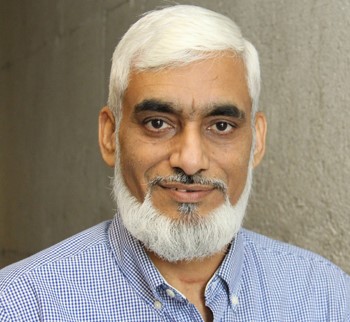
Hassan Qudrat-Ullah, a professor at York’s Faculty of Liberal Arts & Professional Studies, doesn’t see artificial intelligence (AI) as a silver bullet for solving the world’s problems.
Instead, the professor of decision sciences at York University’s School of Administrative Studies, views it as part of a broader tool kit – one that requires systems thinking (an approach that considers a system and its interconnectedness) to make sense of the tangled web of variables that define today’s most pressing challenges.

From energy policy to education, his research focuses on how AI can help leaders make decisions that are not only smarter, but also more sustainable.
“AI is great at crunching numbers and spotting patterns, but without a systems perspective, it’s easy to miss the bigger picture,” Qudrat-Ullah says. “My work is about using AI to understand how these variables interact, so we can make decisions that are both informed and holistic.”
This approach underpins much of Qudrat-Ullah’s recent work, including four books published in 2025. Among them is Navigating Complexity: AI and Systems Thinking for Smarter Decisions, which examines how AI-powered tools can simplify decision making for leaders grappling with global-scale problems. But his research isn’t confined to abstract frameworks – it’s grounded in real-world applications.
Take energy policy, for instance. “Understanding feedback loops in energy systems doesn’t just help policymakers manage resources,” he explains. “It also provides transferable insights for organizational decision making in other sectors.”
This cross-disciplinary approach reflects Qudrat-Ullah’s belief that the challenges of one field often mirror those of another.
In higher education, his work focuses on how AI can be used to personalize learning and predict student success trends. But he is quick to caution against adopting technology for its own sake.
“Educational institutions need to think holistically,” says Qudrat-Ullah. “AI and analytics are powerful tools, but they have to align with broader institutional and societal goals.”
One of Qudrat-Ullah’s more unconventional ideas involves what he calls “creativity loops” – a concept explored in his book Creativity Loops–Based Decision Making. The idea is simple yet transformative: by combining systems thinking with iterative problem-solving, leaders can arrive at solutions that are both innovative and adaptive.
“I was inspired by the need for new approaches to problem solving in uncertain environments,” he says. “Creativity loops allow us to test ideas, learn from them and refine them in real time.”
For researchers interested in exploring the intersection of AI and systems thinking, Qudrat-Ullah offers practical advice: embrace interdisciplinary learning and focus on real-world applications.
“The challenges we face today are too complex for any one field to solve alone,” he says.
